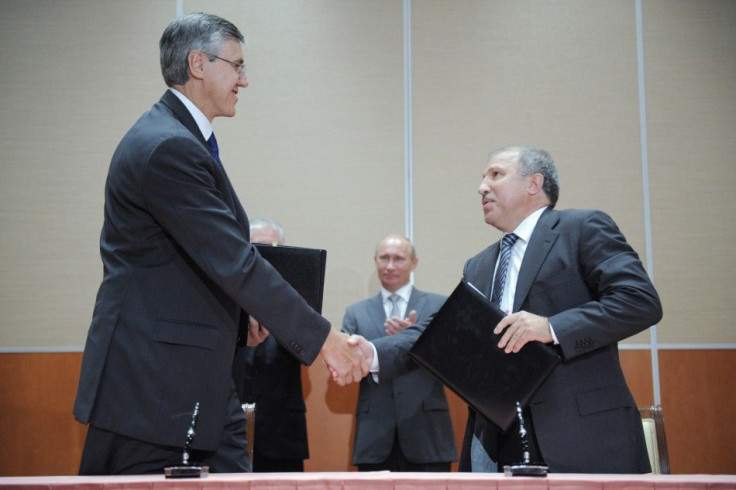Exxon Mobil Signs Arctic Drilling Deal With Russia

Exxon Mobil can look for oil in Russian territory in the Arctic under an agreement made Tuesday with Rosneft, the Russian state oil company.
The deal is huge for Exxon Mobil, which beat out its competitors for access to a region in which oil drilling is largely prohibited. It is also a surprising coup over BP, which had reached a similar agreement with Rosneft earlier in the year. Tuesday's Exxon Mobil agreement superseded the earlier BP one, which collapsed because of legal opposition from other Russian businesses with which BP had worked.
In exchange for giving Exxon Mobil access to the Arctic territory, Rosneft will receive a valuable collection of assets from the oil company, although it has not been made public what exactly those assets are.
The agreement pertains to an area of the Arctic called the Kara Sea, located north of Siberia. Previously, oil companies had seen no potential there, because the ice was simply too thick for drilling. But now that climate change is causing the ice to thin and recede, it is becoming much more feasible to explore and drill there, and doing so could be extremely lucrative, particularly because the Arctic is one of the last regions to remain largely untouched by oil exploration.
Exxon Mobil is definitely one of the leading companies, including for operations in the challenging Arctic latitudes, Vladimir Putin, the Russian prime minister, said upon signing the multibillion-dollar agreement, The New York Times reported.
Exxon Mobil and BP have a dubious distinction in common, having been responsible for the two biggest oil spills in United States history. The 1989 Exxon Valdez oil spill (which happened long before Exxon merged with Mobil) dumped between 260,000 and 750,000 barrels of crude oil into Prince William Sound in Alaska, while the 2010 BP Deepwater Horizon spill released nearly five million barrels of oil into the Gulf of Mexico.
But while BP's reputation is still deeply tainted by the Deepwater Horizon disaster, Tuesday's deal is vivid evidence that Exxon's transgressions have been forgiven, at least by major business partners. With the Rosneft agreement, Exxon has permission to drill not just in an area heavily protected by environmental regulations and lawsuits, but in the same region -- albeit farther north -- where the 1989 spill occurred.
© Copyright IBTimes 2025. All rights reserved.





















